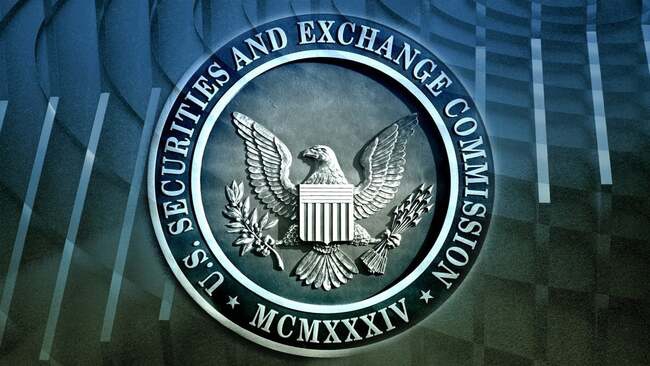Highlights:
- a16z and DeFi Education have urged the SEC to create a safe harbor for blockchain apps.
- The proposal seeks to ensure peer-to-peer blockchain interfaces are not classified as broker-dealer activities.
- Adoption of the safe harbor could give blockchain developers clarity and reduce the fear of legal misclassification.
Two prominent crypto advocacy organizations have urged the United States Securities and Exchange Commission (SEC) to introduce a safe harbor for blockchain applications. Andreessen Horowitz (a16z) and the DeFi Education Fund submitted a joint proposal on August 12. The following day, a16z published a blog post outlining the details and purpose of the initiative.
a16z (@a16z) and the DeFi Education Fund (@fund_defi) have officially requested the SEC to exempt NFT and DeFi platforms from broker registration, proposing a "Safe Harbor" to provide regulatory clarity.
💰 The request points to the need for a moratorium on existing rules,… pic.twitter.com/awmZUz2wfb
— TokenPost (@tokenpost) August 14, 2025
The proposal by a16z and DeFi Education suggests that software interfaces enabling peer-to-peer transactions should receive a “rebuttable presumption” of not engaging in broker-dealer activity. This approach would prevent developers of neutral blockchain applications from being treated as intermediaries. The groups highlighted that the SEC’s prior stance, enforced through actions and notices, has raised serious concerns.
According to their statement, requiring developers to register as brokers would force them into roles they never intended to take. These roles include acting as custodians, gatekeepers, and intermediaries in transactions. The organizations believe that this would undermine the efficiency of blockchain systems and create additional risks for users. They argue that such a safe harbor could protect developers while preserving the intended benefits of decentralized networks.
a16z and DeFi Education Urge for Blockchain-Friendly SEC Policies
This recent joint effort follows a16z’s earlier communication with SEC Commissioner Hester Peirce in March. In that letter, a16z proposed a safe harbor for digital collectibles with clear conditions to exclude routine token transactions from securities laws. The company also recommended similar frameworks for airdrops and network tokens.
The groups’ latest proposal also aligns with the President’s Working Group on Digital Assets’ call to grant relief for specific DeFi service providers. The relief would apply to broker-dealer, exchange, and clearing agency requirements under the Exchange Act. Their letter to the SEC stressed that only applications posing no significant risks should qualify for the safe harbor. Broker registration would not be valid, they reasoned, in such situations. On August 1, a16z raised issues with the use of the term “ancillary assets” in the proposed digital asset bill.
Andreessen Horowitz warns that current U.S. crypto regulation drafts, like the CLARITY Act, risk legal loopholes and weaker investor protections—especially around ancillary assets and secondary markets. They urge adopting a control-based decentralization model and phased transfer… pic.twitter.com/vXlGwmyzHp
— Fama Crypto (@Famacrypt) August 1, 2025
They also added that the safe harbor would bring clarity to developers and would enable the SEC to maintain oversight of greater-risk activities. The strategy may eliminate a wrong application of the legal regulations that are incompatible with contemporary blockchain software.
SEC enforcement against companies like Coinbase, Kraken, and Cumberland DRW in the past has increased industry demands for unambiguous rules. The SEC could streamline blockchain development in the United States by reducing legal uncertainty through a safe harbor.
Potential Impact if SEC Adopts the Safe Harbor
Assuming they implement the safe harbor, blockchain developers may work without the fear of misclassification as a broker. This shift might shield innovation and also guarantee that the SEC exercises control over the highly risky operations. Interface developers who make neutral interfaces to peer-to-peer transactions would be able to proceed with their work without unwarranted roles imposed upon them.
The SEC has already implemented new approaches concerning digital assets. The body established the Special Purpose Broker-Dealer classification for custodying digital asset securities. In May, it clarified that this designation is optional, and existing broker-dealer requirements continue to apply. In addition, Congress is weighing legislation that could redefine how digital assets are handled. The CLARITY Act, which would create a market structure around crypto, cleared the House in July but is pending in the Senate.
Best Crypto Exchange
- Over 90 top cryptos to trade
- Regulated by top-tier entities
- User-friendly trading app
- 30+ million users
eToro is a multi-asset investment platform. The value of your investments may go up or down. Your capital is at risk. Don’t invest unless you’re prepared to lose all the money you invest. This is a high-risk investment, and you should not expect to be protected if something goes wrong.






